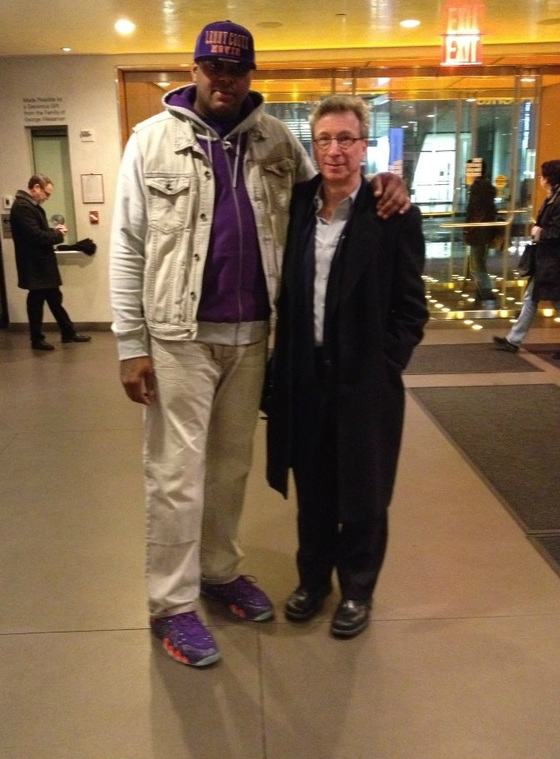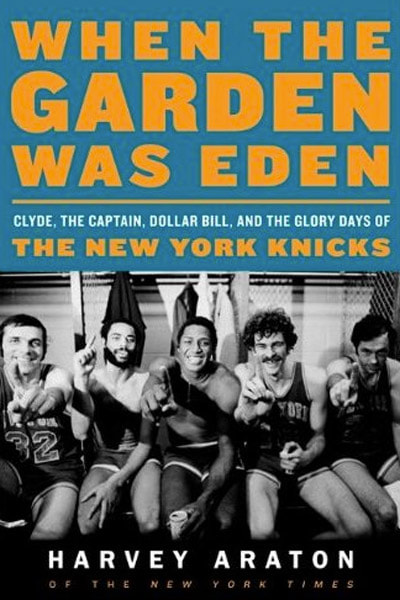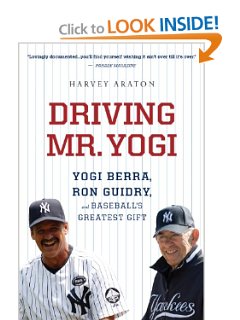It is not easy watching yourself on the big movie screen and certainly without the benefit of makeup. So when I saw myself in Lenny Cooke -- the documentary on the one-time New York high school legend who never made it out of the basketball bush leagues -- for the first time last spring, I slid low in my seat and waited anxiously for the next scene.
I had only found out that night that the Safdie brothers, Josh and Benny, had put me in their film, which is currently having a week's run at the Lincoln Plaza Film Society in New York, among other cities, on the way to probable pay television availability. The footage is of me interviewing Lenny at his home in southern Virginia for a long story I did http://nyti.ms/1iSXes8 in the New York Times in March 2012.
Adam Shopkorn, the producer of Lenny Cooke, had picked up the project he'd started in 2000-01, when Cooke was rated ahead of LeBron James. I decided to tell the Times story, in part, through the filmmakers -- and how their presence in Cooke's less-than-glamorous life was restoring a measure of the stardom he thought he was destined for way back when.
My own experience with Cooke began in 2000, when my editor at the Times, Neil Amdur, asked me to look into the story of a black basketball star from Brooklyn who had moved in with a white family in affluent Bergen County, N.J. to help steady himself, academically and otherwise. I did a series of columns on Cooke, which began hopefully http://nyti.ms/1f46unK but ultimately began to drift toward an unhappy outcome http://nyti.ms/1f46unK that occupies the second half of the film. My scene, I was told, was used to connect the Lenny of old with the Lenny of now.
In addition to being a fascinating cautionary tale (don't take my word for it, but try Richard Brody of The New Yorker http://nyr.kr/1cfujWr) Lenny Cooke is worth seeing just for the old footage Shopkorn compiled when Cooke was touring the premier high school camps and competing against James, Carmelo Anthony, Amar'e Stoudemire and Chris Bosh.
As for my acting and screen presence, I'd like to thank the academy in advance for not nominating me and further exposing me.
I had only found out that night that the Safdie brothers, Josh and Benny, had put me in their film, which is currently having a week's run at the Lincoln Plaza Film Society in New York, among other cities, on the way to probable pay television availability. The footage is of me interviewing Lenny at his home in southern Virginia for a long story I did http://nyti.ms/1iSXes8 in the New York Times in March 2012.
Adam Shopkorn, the producer of Lenny Cooke, had picked up the project he'd started in 2000-01, when Cooke was rated ahead of LeBron James. I decided to tell the Times story, in part, through the filmmakers -- and how their presence in Cooke's less-than-glamorous life was restoring a measure of the stardom he thought he was destined for way back when.
My own experience with Cooke began in 2000, when my editor at the Times, Neil Amdur, asked me to look into the story of a black basketball star from Brooklyn who had moved in with a white family in affluent Bergen County, N.J. to help steady himself, academically and otherwise. I did a series of columns on Cooke, which began hopefully http://nyti.ms/1f46unK but ultimately began to drift toward an unhappy outcome http://nyti.ms/1f46unK that occupies the second half of the film. My scene, I was told, was used to connect the Lenny of old with the Lenny of now.
In addition to being a fascinating cautionary tale (don't take my word for it, but try Richard Brody of The New Yorker http://nyr.kr/1cfujWr) Lenny Cooke is worth seeing just for the old footage Shopkorn compiled when Cooke was touring the premier high school camps and competing against James, Carmelo Anthony, Amar'e Stoudemire and Chris Bosh.
As for my acting and screen presence, I'd like to thank the academy in advance for not nominating me and further exposing me.




 RSS Feed
RSS Feed
